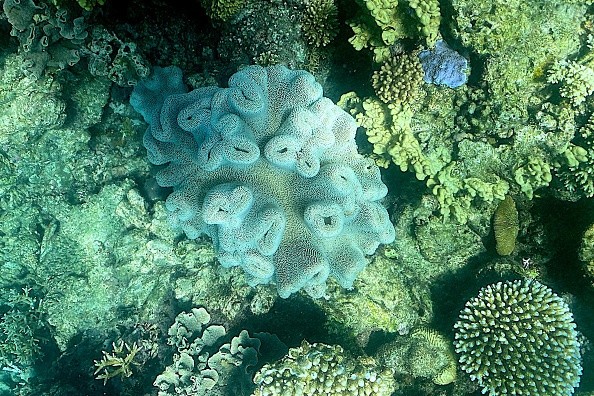The worsening effects of the climate crisis and global warming have been major concerns for many environmental groups.
Ocean warming and ocean acidification have enormously impacted marine and aquatic life.
Recently, a group of scientists raised concerns over the conspicuous impact of the climate crisis on the Great Barrier Reef.

According to a UNESCO report, the Great Barrier Reef is an important habitat and place for many animals on Australia's northeast coast.
Scientists and environmental groups have emphasized the importance of the Great Barrier Reef for many animals.
UNESCO explained that the area is home to the largest coral reef collection, reaching up to 400 different types of corals in the ocean.
Scientists have been monitoring the Great Barrier Reef for research and new discovery.
UNESCO added that the area is also considered a crucial habitat for over 1,500 different species of fish.
However, UNESCO also explained that the Great Barrier Reef showed to be threatened, including the decline of water quality, destruction or loss of coastal habitats, illegal fishing practices, and extreme weather conditions.
Danger list
According to a CNN report, the climate crisis caused more threats to the Great Barrier Reef after scientists visited the area, noting that the threats to the world's largest reef could have catastrophic effects on marine and aquatic environments.
The monitoring of scientists in the area discovered that the Great Barrier Reef experienced massive bleaching because of climate change, which showed that the northern and central parts suffered severely.
The bleaching event could have a disastrous impact on the area's coral reefs and marine animals.
UNESCO scientists who conducted the 10-day mission found that Australia's Great Barrier Reef is endangered by the worsening climate crisis requiring an urgent response, urging the area to be on the world's danger list.
The CNN report noted that the Great Barrier Reef in the danger list met the criteria.
The report further explained that human-made climate change has contributed to the climate crisis.
Develop urgent policies and actions
As a result, the mission urged to develop policies to address the climate crisis that could threaten the Great Barrier Reef.
The recommendations suggested reducing the emission of greenhouse and increasing financial resources.
The report added that Australia's Great Barrier Reef is an important marine ecosystem, noting that urgent actions and policies are crucial to address the climate crisis.
Heat stress and the warming of ocean waters have been major concerns. Coral reef systems and aquatic animals could affect their habitats and food sources.
Ultimately, the report raised concerns for immediate actions as the worsening warming event could even damage the Great Barrier Reef, a home in marine ecosystems.
Further damage could not be reversed easily, especially since the coral reef system doesn't recover quickly from prolonged and frequent heat waves and stress.
Coral reefs could fail to adapt to the warming of oceans, leading to more complex problems.
Related Article : Tropical Forests on Indigenous Lands Are Healthiest, Diverse, and Ecologically Resilient
For more similar stories, don't forget to follow Nature World News.
© 2025 NatureWorldNews.com All rights reserved. Do not reproduce without permission.





